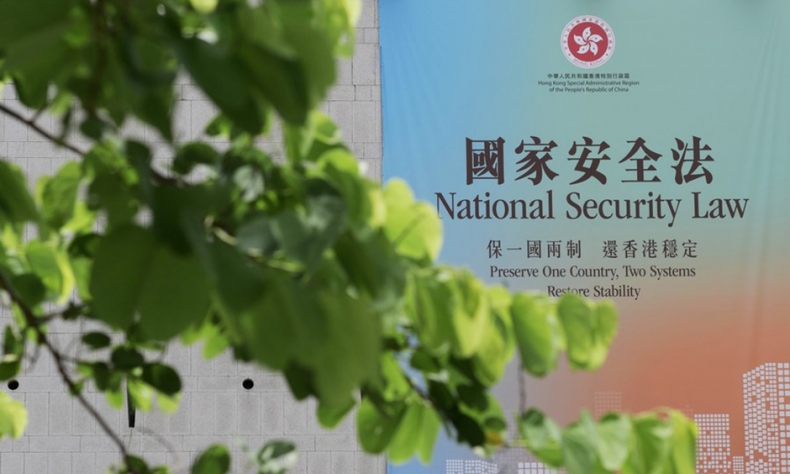British Response to HK National Security Law ‘Hypocritical’

Boris Johnson’s government should concentrate on doing what the majority of people want, according to recent YouGov public opinion polls – namely, maintaining good relations between Britain and China.
People in Britain today know little or nothing of their country’s record of “national iniquity against China” which, in the words of 19th century Prime Minister William Gladstone, “cover this country in permanent disgrace.” Schools now teach children about the British Empire and the slave trade, but China is largely ignored.
Now the British public is being told by Boris Johnson’s government that China is crushing democratic rights in Hong Kong. China’s new law on safeguarding national security in Hong Kong, it is claimed, blatantly violates the 50-year agreement between Britain and China on the future of Hong Kong after the handover in 1997.
On its own, this is unlikely to have a major impact on public opinion in Britain. Many television viewers were shocked to see the damage inflicted by Hong Kong protesters on shops, public buildings and members of the press and public who did not agree with them. It is difficult to imagine the authorities in Britain tolerating the destruction of airport facilities – let alone the chamber of the House of Commons – without responding with maximum force to quell such disruption.
As for China’s new security law in Hong Kong, its main provisions are already exercised by the Western countries rushing to denounce China. There is very little in the structures, powers, offences, exemptions or safeguards proposed by the security law which does not already exist in Britain.
Furthermore, the ordinary police and their Special Branch in Britain have extensive powers to enter and search domestic and commercial premises and to arrest suspected criminals, all of which can be done even without a warrant when national security is supposedly at stake.
The new Committee for Safeguarding National Security of Hong Kong Special Administrative Region is being established on a statutory basis – unlike Britain’s secret and intelligence services which operated outside the law for many decades until the late 1980s and early 1990s.
Enactment of the new Hong Kong security law by the National People’s Congress is not a violation of the former’s autonomy. Hong Kong is not a separate nation. They have the devolved powers of a special administrative region rather than the right of a nation to self-determination.
No sovereign country divides ultimate control of its national security policy between its constituent regions.
Thus, for example, the main provisions of Britain’s Aviation and Maritime Security Act (1990), Terrorism Act (2006), Terrorism Prevention and Investigation Measures Act (2011), Counter-Terrorism and Security Act (2015) apply fully across England, Scotland and Wales as well as Northern Ireland. They can be extended by government ministers to the autonomous Isle of Man and Channel Islands at the stroke of a pen in the secretive and non-elected Privy Council.
Certainly, they allow no autonomy in national security matters to the populated islands of Anglesey, Orkney and Shetland or the Isle of Wight – least of all as the result of some treaty with a foreign power.
Most people in Britain realize that acts of terrorism and violent subversion have to be combated within the law. Free from the misinformation against China, they would also understand that Hong Kong cannot be allowed to become a haven for violent subversion or dangerous criminals wanted for serious offences on the Chinese mainland.
Instead of hypocritically condemning the Chinese authorities for taking the necessary steps to safeguard national security, the British government would do better to end Britain’s long record of interference in Chinese affairs.
So far, the Chinese government and the Hong Kong authorities have shown far more restraint in the teeth of the violent provocations in Hong Kong.
There is no reason to believe that China’s policy of restraint will change, although action will rightly be taken against those who plot and commit serious crimes.
In the meantime, Boris Johnson’s government should concentrate on doing what the majority of people want, according to recent YouGov public opinion polls – namely, maintaining good relations between Britain and China.
Robert Griffiths is a former Senior Lecturer in Political Economy and History at the University of Wales and currently the General Secretary of the Communist Party of Britain.
 Facebook
Facebook
 Twitter
Twitter
 Linkedin
Linkedin
 Google +
Google +










